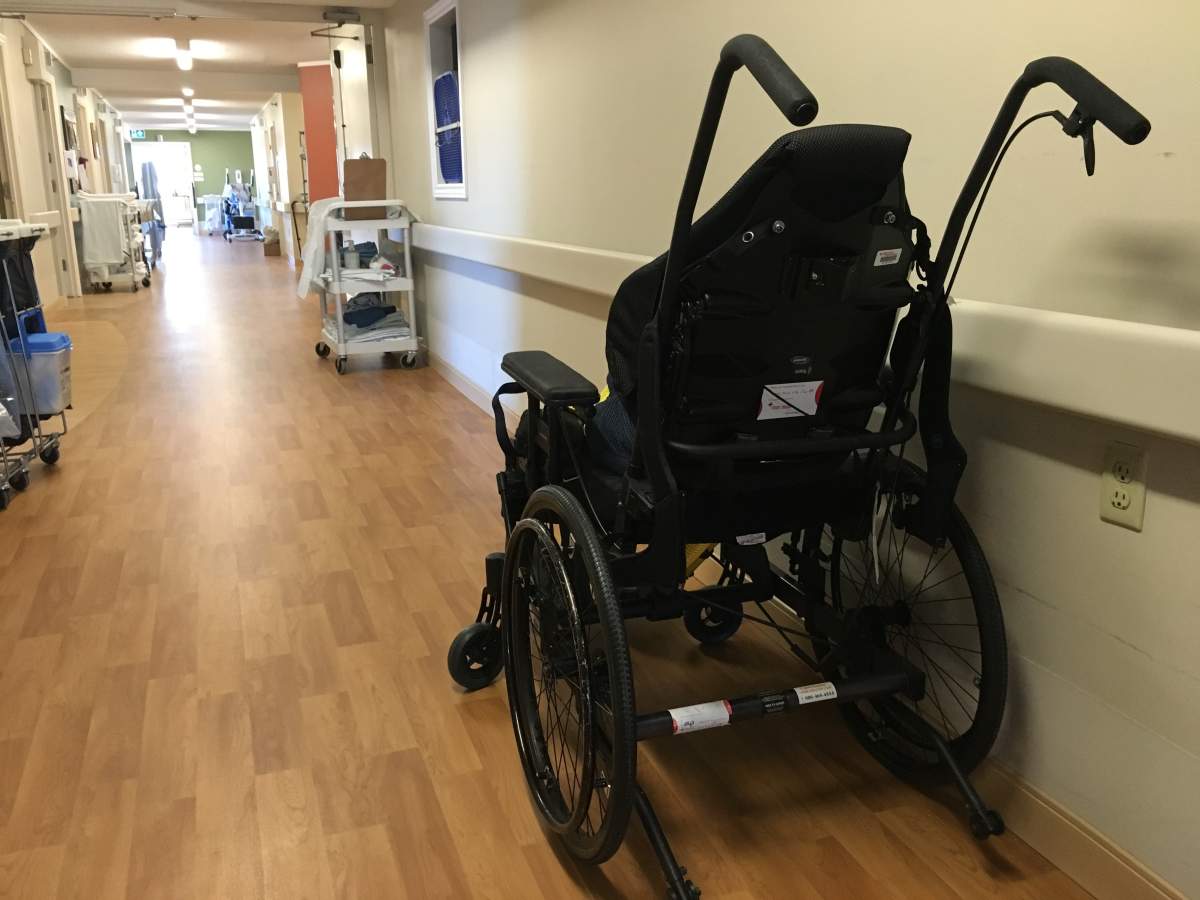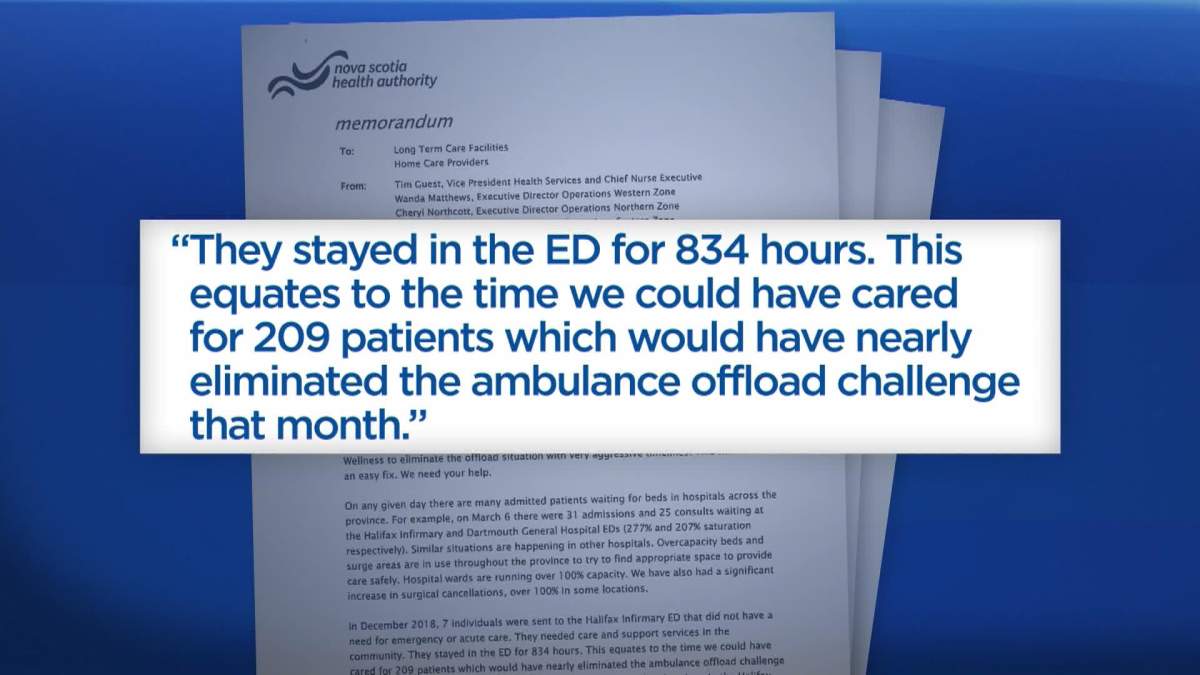Nursing home directors in Nova Scotia feel a recent memo authored by the province’s health authority points to an ongoing need to openly discuss mounting problems in the health-care system — particularly between the health authority and long-term care providers.

“It can put us at a place where we may seem like we’re in conflict, but [long-term care residents] need to feel safe,” said Josie Ryan, director of long-term care at Northwood, a continuing care organization.
The memo highlights the “serious issue and concern” that overcrowding in hospital emergency departments (ED) and ambulance offloading areas has become.
The memo says the health authority needs nursing homes to assist in alleviating pressure on the ED.
According to the NSHA, Health Minister Randy Delorey has set “aggressive timelines” for the authority to eliminate the overcrowding challenge.
The memo highlights the valuable health-care service that long-term care facilities provide but also points to residents being sent to the ED without “a need for emergency or acute care.”
The memo goes on to suggest a series of recommendations for long-term care providers to consider as a way to help with growing NSHA shortages.
The suggestions include everything from information on the protocol for transfers to hospitals to managing flu closures.

Get weekly health news
“Many of the recommendations that were identified in this memo have already been adopted by members of our association. Many nursing homes across the province have been actively working towards the goals that the health authority have set out four years ago,” Michele Lowe, managing director of the Nursing Homes of Nova Scotia Association, said.
The memo states that in December 2018, seven individuals in long-term care were sent to the Halifax Infirmary emergency department that didn’t require an urgent level of care.
According to the memo, those individuals ended up staying in the ED for 834 hours, which is equivalent to the amount of care that could be provided to 209 patients.
Those numbers don’t add up for Lowe.
“We couldn’t understand how seven residents could possibly cause that much backlog so I think there’s definitely been some questions around the data that’s being used, and how does that work to support some of the changes that have to be made,” she said.
Ryan says the long-term care workers at Northwood were relatively unfazed by the memo because they are aware of problems faced by the health authority and are actively working to help address them.
“For the most part, they’re seeing the health system in a bit of crisis right now because of the emergency rooms, et cetera, and they are working very diligently to make sure that our residents are cared for because we don’t want them to go to the emergency department, either, and be on a stretcher for 12 hours,” Ryan said.
In an email statement, a spokesperson with the NSHA says the concerns raised by continuing care providers are being addressed.
Ryan says she’s “optimistic” that the memo will lead to productive conversations between the NSHA and long-term care providers.








Comments